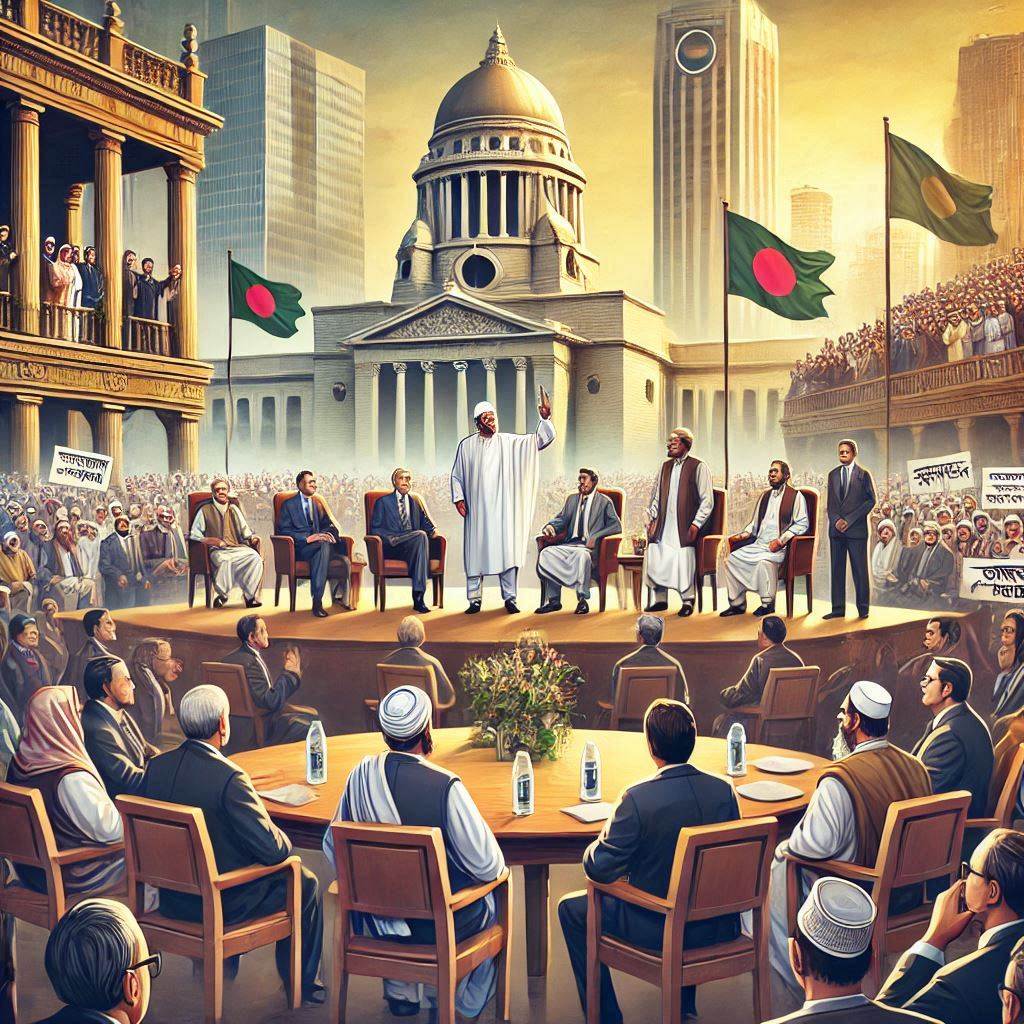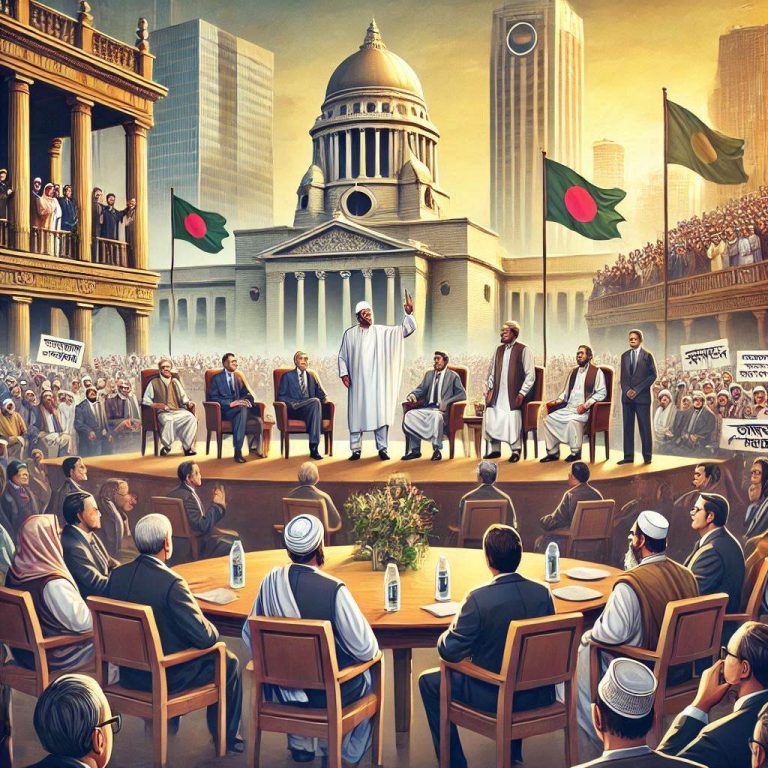
Introduction.
As we usher in 2025, the world is enmeshed in a complex array of economic and political challenges. Global economic growth remains tepid, with geopolitical conflicts, trade tensions, and soaring debt levels casting shadows on the horizon. This uncertain global environment significantly affects countries worldwide, including Bangladesh, which grapples with its own political and economic hurdles. This article explores the current global situation and its profound impact on Bangladesh, highlighting the intricate interplay between international developments and local realities.
Global Economic Overview.
In January 2025, the global economy is marked by modest growth, projected at 2.8%, unchanged from the previous year. This growth rate is below the pre-pandemic average, hindered by weak investment, sluggish productivity, and high debt levels. Geopolitical conflicts and trade tensions persist, posing considerable risks to low-income and vulnerable countries.
Key Global Economic Factors.
Geopolitical Conflicts: Ongoing conflicts in regions such as Ukraine and the Middle East have disrupted global supply chains and spiked energy prices.
Trade Tensions: The resurgence of protectionist policies, particularly in the United States under President Donald Trump’s second term, has led to increased tariffs on imports, especially from China, affecting global trade dynamics.
High Debt Levels: Many countries are struggling with high public and private debt levels, limiting their capacity to invest in growth-enhancing projects.
Monetary Policy: Central banks in major economies have adopted a cautious stance, with ongoing monetary easing providing some relief but also raising concerns about long-term inflation.
Impact on Bangladesh.
Bangladesh, already reeling from political instability following the resignation of Prime Minister Sheikh Hasina, faces additional economic challenges. The political crisis has resulted in widespread violence, curfews, and internet shutdowns, severely impacting daily operations and investor confidence. High inflation, supply chain disruptions, and rising youth unemployment further complicate the situation, making economic recovery an uphill battle.
Political Instability and Economic Impact.
The political crisis in Bangladesh has led to significant economic losses. The Foreign Investors’ Chamber of Commerce and Industry (Ficci) reported that the recent shutdown significantly impacted the economy, with estimated losses exceeding $10 billion. The violence and instability have disrupted local markets, hospitals, transport systems, and food delivery services, further straining the already fragile economy.
Economic Challenges and Recovery Efforts.
Inflation:
High inflation rates have eroded purchasing power and increased the cost of living for many Bangladeshis.
Supply Chain Disruptions:
Ongoing global supply chain disruptions have affected the availability of essential goods and raw materials, impacting local industries.
Youth Unemployment:
Rising youth unemployment rates have led to social unrest and increased pressure on the government to create job opportunities.
Recovery Efforts:
The interim government, led by Dr. Muhammad Yunus, is working to stabilize the economy and restore political order. Efforts include implementing fiscal and monetary policies to boost growth, attracting foreign investment, and improving infrastructure.
Global Cooperation and Sustainable Development.
The interplay between global economic conditions and local political turmoil underscores the need for decisive action and international cooperation to navigate these uncertain times. As Bangladesh strives to stabilize its economy and restore political order, the global community must also play a role in fostering a sustainable and prosperous future for all.
Conclusion.
The global economic landscape in 2025 presents significant challenges, with geopolitical conflicts, trade tensions, and high debt levels affecting growth prospects. Bangladesh, already facing political instability and economic difficulties, must navigate these challenges with resilience and strategic planning. International cooperation and support will be crucial in ensuring a sustainable and prosperous future for the country and the world at large.
Legal Disclaimer.
This article, “Navigating Uncertainty: How Global Trends in January 2025 Shape Bangladesh’s Political and Economic Future,” is intended solely for educational purposes. The content provided herein is based on publicly available information and is meant to inform and enhance understanding of the current global economic and political landscape as of January 2025, and its impact on Bangladesh. It is not intended to serve as professional advice or to replace independent judgement. Readers are encouraged to seek professional guidance for specific legal, economic, or political concerns. The author and publisher disclaim any liability for any direct, indirect, or consequential losses or damages arising from the use or reliance on this article.



